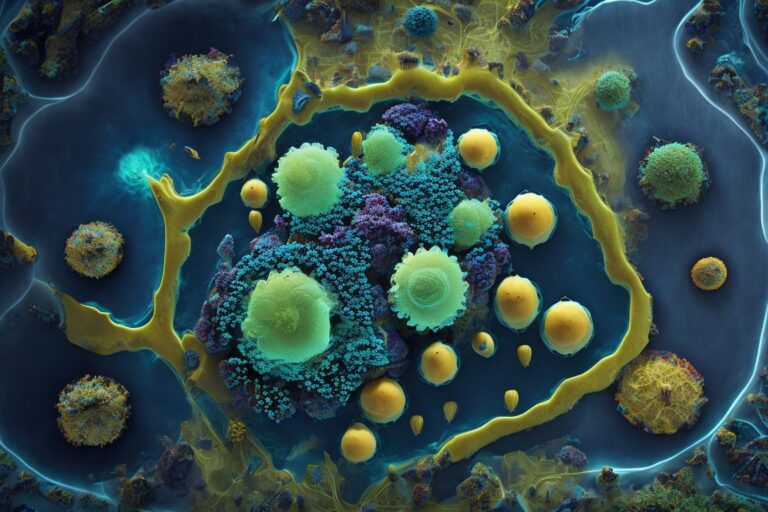Are Probiotics A Waste Of Money?
Debunking the Myths and Examining the Evidence
Probiotics have gained significant popularity in recent years, with many people turning to these “friendly bacteria” to improve their gut health. However, amidst the hype, questions arise about whether probiotics are truly beneficial or merely a waste of money.
I. Understanding Probiotics:
1. What Are Probiotics?
Probiotics are live microorganisms that, when consumed in adequate amounts, confer health benefits to the host. These microorganisms, primarily consisting of bacteria and some yeasts, are naturally present in our digestive tract and play a crucial role in maintaining a balanced gut microbiota.
Source: https://www.ncbi.nlm.nih.gov/pmc/articles/PMC5835046/
2. How Do Probiotics Work?
Probiotics work through various mechanisms, such as competing with harmful bacteria for resources, producing antimicrobial substances, and modulating the immune system. They can help restore the natural balance of gut bacteria, potentially improving digestion, nutrient absorption, and overall gut health.
Source: https://www.frontiersin.org/articles/10.3389/fmicb.2018.00490/full
II. The Hype vs. Reality:
1. Debunking Common Misconceptions
Contrary to popular belief, probiotics are not a cure-all solution. While they can be beneficial for certain conditions, their effects vary depending on the individual and the specific strain used. It’s important to approach probiotics with realistic expectations and recognize their limitations.
Source: https://pubmed.ncbi.nlm.nih.gov/25573479/
2. Considering Individual Variations
Individual factors, such as the person’s baseline gut health, existing microbial composition, and overall lifestyle, can influence the effectiveness of probiotics. What works for one person may not work for another, highlighting the need for personalized approaches to probiotic use.
Source: https://www.ncbi.nlm.nih.gov/pmc/articles/PMC3833126/
III. Scientific Evidence:
1. Evidenced Benefits of Probiotics
Scientific studies and clinical trials have demonstrated the effectiveness of certain probiotic strains in specific conditions. For example, Lactobacillus rhamnosus GG has shown promising results in preventing antibiotic-associated diarrhea, while Bifidobacterium infantis 35624 has been found effective in managing symptoms of irritable bowel syndrome.
Source: https://pubmed.ncbi.nlm.nih.gov/24690484/
2. Areas Requiring Further Research
Although some benefits of probiotics are supported by evidence, more research is needed to fully understand their potential. Areas that require further investigation include the optimal dosage, long-term effects, and their effectiveness for various health conditions.
Source: https://www.sciencedirect.com/science/article/pii/S2352364617301333
IV. Quality Control and Choosing the Right Probiotic:
1. Lack of Regulation
It’s essential to be aware that the probiotics industry is currently not well-regulated. This lack of oversight raises concerns about inconsistent product quality, misleading claims, and inaccurate labeling.
Source: https://jamanetwork.com/journals/jama/fullarticle/2733085
2. Tips for Selecting High-Quality Probiotics
When choosing a probiotic, consider factors such as strain specificity (matching the strain to the desired health benefit), viable cell count (ensuring sufficient live bacteria in the product), and packaging (protecting the probiotics from moisture and heat).
Source: https://www.ncbi.nlm.nih.gov/pmc/articles/PMC6600663/
V. Cost vs. Value:
1. Assessing Cost-Effectiveness
Probiotics’ cost-effectiveness depends on various factors, including the severity of the condition being addressed, the potential for long-term health benefits, and the availability of alternative interventions. For some individuals, the value of probiotics may outweigh the cost.
Source: https://www.ncbi.nlm.nih.gov/pmc/articles/PMC2886445/
2. Exploring Alternative Strategies
While probiotics can be beneficial, alternative strategies, such as consuming a balanced diet rich in fiber and fermented foods, may also promote gut health. These approaches may offer cost-effective options for individuals seeking to improve their digestive well-being.
Source: https://pubmed.ncbi.nlm.nih.gov/28445458/
Conclusion:
Probiotics hold promise in supporting gut health, but they are not a magical solution for all health concerns. Understanding the science behind probiotics, considering individual variations, and choosing high-quality products are essential for making informed decisions. It’s important to consult healthcare professionals for personalized advice and remain open to emerging research in this rapidly evolving field.




